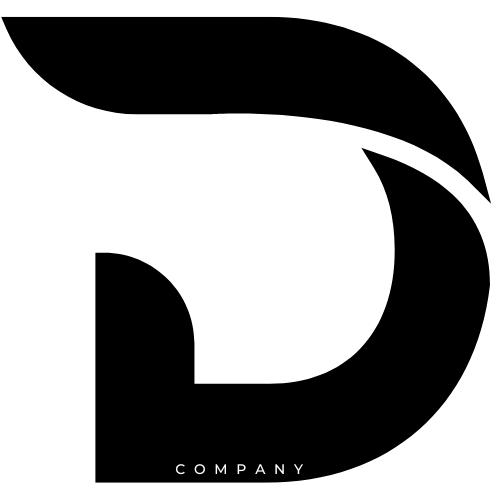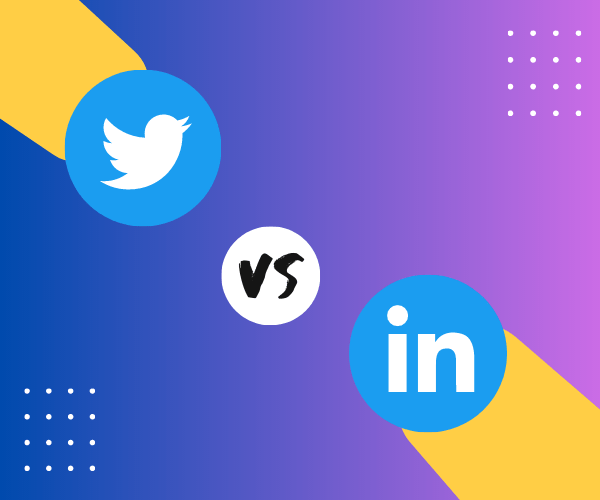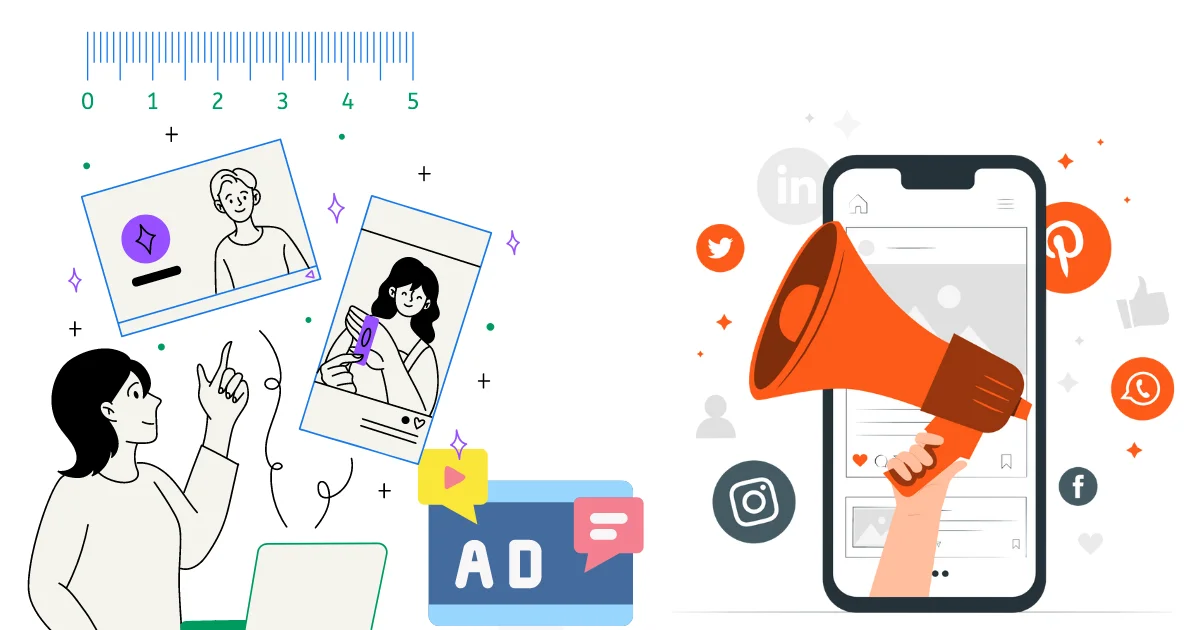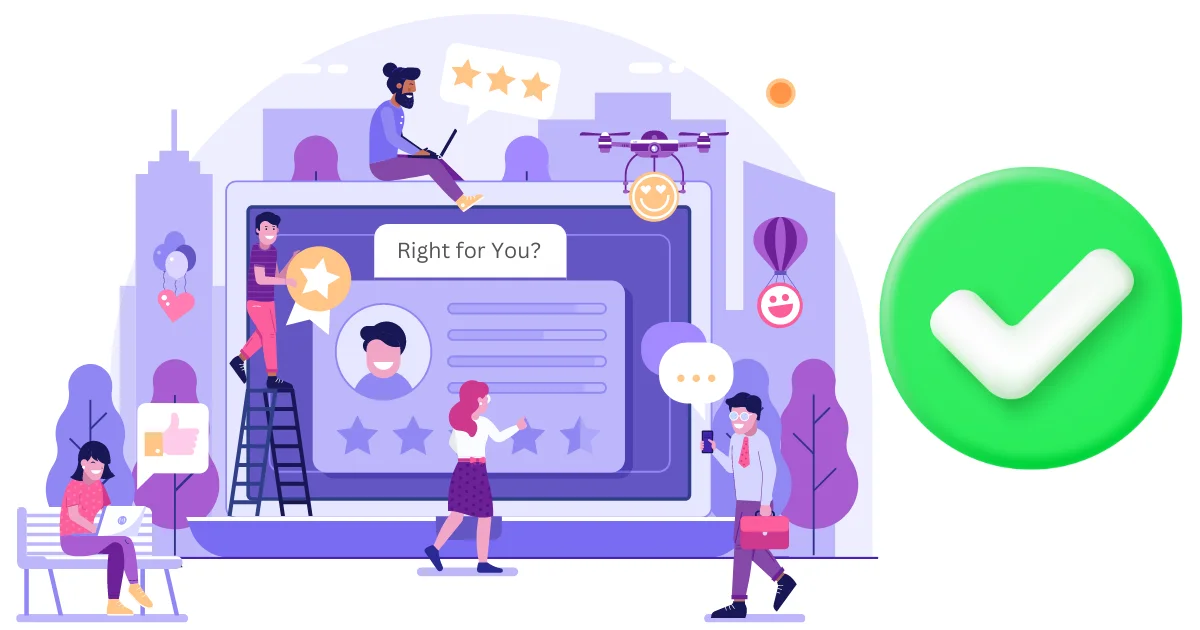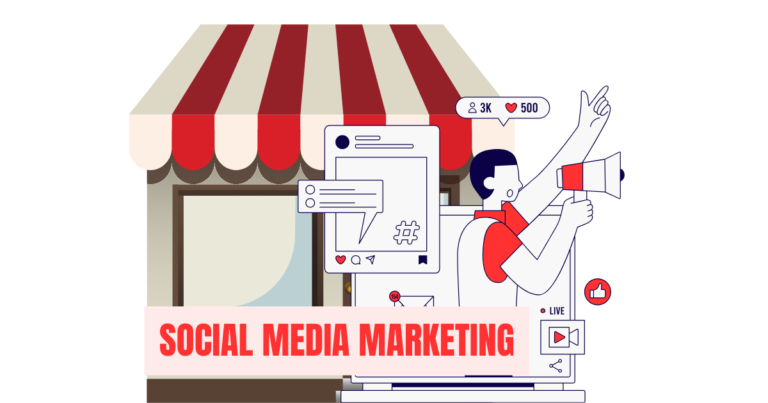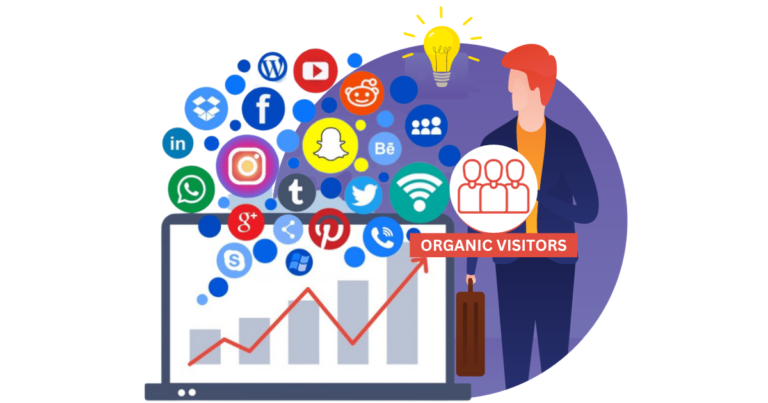Do you want to invest in social media advertising but are unsure which platform to pick between Twitter Ads vs LinkedIn Ads? Both platforms provide distinct benefits for companies trying to expand their audience and build their brand, but they differ significantly in ways that might have an effect on how well your marketing strategy performs. Based on your advertising objectives, target market, and financial constraints, we will evaluate Twitter ads versus LinkedIn ads in this post to assist you in selecting the platform that is most appropriate for your company.
Twitter Ads: Quick Overview
Users of the microblogging site Twitter may send and read quick messages known as “tweets.” Businesses may advertise their goods and services on Twitter by choosing consumers to target based on their interests, geography, and demographics.
Here are some essential characteristics of Twitter ads:
- Ad formats: Promoted tweets, promoted accounts, and promoted trends are just a few of the several ad forms available on Twitter.
- Targeting options: Keywords, interests, followers, demographics, and geography are among the ad targeting choices available on Twitter.
- Cost: With a $50 minimum purchase, Twitter ads use a cost-per-engagement (CPE) or cost-per-impression (CPM) style of operation.
- Audience size: With 145 million daily active users, Twitter has over 330 million monthly active users.
LinkedIn Ads: Quick Overview
Users of LinkedIn may build a professional profile, interact with other professionals, and exchange material. It is a platform for professional networking. Businesses may target their advertising to certain audiences using LinkedIn advertising based on information like job title, employer, industry, and more. Here are some essential characteristics of LinkedIn ads:
- Ad formats: sponsored content, sponsored InMail, and display advertising are just a few of the ad forms that LinkedIn provides.
- Targeting options: There are several ways to target ads on LinkedIn, including by job title, employer, sector, and more.
- Cost: The minimum spend for LinkedIn Ads is $10, and they run on a cost-per-click (CPC) or cost-per-impression (CPM) model.
- Audience size: With 260 million active users each month, LinkedIn has more than 700 million subscribers.
Target Audience
The target audience is one of the key distinctions between Twitter advertisements and LinkedIn ads. Twitter is a more laid-back network with a large user base that includes both consumers and companies. In contrast, the majority of business people utilize the professional networking site LinkedIn. LinkedIn advertisements could be a better option if your company wants to connect with a B2B clientele. You may use LinkedIn to target
people based on their job title, business size, industry, and other qualifications. The decision-makers and influencers who are most likely to be interested in your goods or services are thus simpler to approach. Twitter advertisements could be a better option if your company wants to reach a larger consumer base. You may target individuals on Twitter based on their demographics, hobbies, and activities. This makes it simpler to spread brand awareness and reach a larger audience.
Ad Formats
The various ad formats are another distinction between Twitter advertisements and LinkedIn ads. Promoted tweets, promoted accounts, and promoted trends are just a few of the several ad forms available on Twitter. Regular tweets are promoted when businesses pay to have them seen by more people. Businesses may pay to promote hashtags on Twitter through sponsored trends and promoted accounts, both of which are intended to help them gain more followers.
In addition to sponsored content, sponsored InMail, and display advertisements, LinkedIn provides a variety of ad forms. Native advertising that appears in users’ newsfeeds is referred to as sponsored content. A form of email marketing called “sponsored in-mail” enables companies to deliver customized messages right to consumers’ inboxes. On LinkedIn and other websites and applications that are members of the LinkedIn ad network, banner ads called “display ads” can be seen.
Cost
When deciding between Twitter ads and LinkedIn ads, price is always a crucial consideration. Both platforms use an auction-based pricing model, so the price of your ads will depend on things like your bid, your target audience, and the type of ad you are running.
Ads on LinkedIn are often more costly than those on Twitter. This is so because LinkedIn has a higher-quality audience and more accurate targeting choices. But because LinkedIn’s cost per click (CPC) can be so much higher than Twitter’s, it might not be practical for smaller companies with tighter budgets for advertising.
Budget
Another crucial aspect to take into account is your budget. Twitter could be a better choice if you have a tight budget because it is often less costly than LinkedIn. LinkedIn could be a better choice, though, if you have a bigger budget and wish to target particular businesses or industries.
Best Practices for Twitter Ads
- Utilize captivating images and videos to make your advertisements stand out.
- To fit inside Twitter’s character restriction, keep your message succinct and to the point.
- To boost exposure and interaction, use relevant hashtags.
- Utilize Twitter’s audience targeting tools to target your ads to the appropriate demographic.
- Maintain regular ad performance monitoring and make necessary strategy adjustments.
Best Practices for LinkedIn Ads
To make the most of your LinkedIn ads, here are some best practices to follow:
- Write your ad copy in a clear, succinct, and professional manner.
- Use eye-catching graphics to draw users in.
- Depending on your advertising objectives, pick the appropriate ad format.
- To reach the correct audience, make use of LinkedIn’s targeting tools.
- To improve your performance, test and tweak various ad forms and messages.
Twitter Ads vs LinkedIn Ads: Key Differences
- 1. Audience: With a larger number of millennials and Gen Z users, Twitter’s audience is younger and more varied. The demographic of LinkedIn is more mature and professional, with a greater proportion of users in the 30- to 49-year-old age group.
- 2. Ad formats: In contrast to LinkedIn’s ad forms, which are more complex, Twitter’s ad formats are more adaptable and innovative, including video commercials.
- 3. Targeting options: Businesses may target users on LinkedIn based on their job title, employer, and industry thanks to the more comprehensive and exact targeting options available.
- 4. Cost: Although LinkedIn ads are often more expensive than Twitter ads, they provide a greater ROI for B2B companies.
Advertising Goals
You may use Twitter advertisements and LinkedIn ads to accomplish various advertising goals. Building brand exposure, increasing website traffic, and generating leads are all fantastic things you can do on Twitter. In contrast, LinkedIn is excellent for generating leads, fostering connections, and boosting sales.
Businesses may send tailored messages to prospective leads using LinkedIn’s sponsored InMail service, which can be a useful tool for establishing rapport with customers. Users may easily input their contact information on LinkedIn’s lead-generating forms, which can help businesses get more leads.
Which Platform is Right for You?
Which advertising platform should you use, then? The response is based on your company’s objectives, target market, and advertising budget.
LinkedIn advertisements could be a better option if you want to target a B2B audience and have a bigger advertising budget. You may connect with the decision-makers and influencers who are most likely to be interested in your goods or services using LinkedIn’s targeting choices and higher-quality audience.
Twitter advertisements could be a better option if you want to reach a larger consumer audience and have a limited advertising budget. With Twitter, you can promote your brand and increase website traffic without spending a fortune thanks to its targeting options and lower CPCs.
Pros and Cons Table
|
Pros/Cons |
Twitter Ads |
LinkedIn Ads |
|---|---|---|
|
Targeting Options: |
Twitter has a variety of targeting options, including interest-based, keyword-based, and follower-based targeting. |
LinkedIn has more extensive targeting options, including job title, company size, industry, and seniority level. |
| Ad Format: |
Twitter offers several ad formats, including promoted tweets, promoted accounts, and promoted trends. |
LinkedIn offers a variety of ad formats, including sponsored content, sponsored InMail, and display ads. |
| Audience Size: | Twitter has a large user base, with over 330 million active monthly users. | LinkedIn has a smaller user base, with around 740 million active monthly users. However, LinkedIn’s audience is generally more professional and business-oriented. |
| Cost: | Twitter ads tend to be less expensive than LinkedIn ads. | LinkedIn ads can be more expensive, but they may also offer better targeting options and higher-quality leads. |
| Engagement: | Twitter users are more likely to engage with tweets and retweet them, leading to increased visibility and reach. | LinkedIn users are less likely to engage with ads, but they may be more likely to convert into leads or customers. |
| B2B vs B2C: | Twitter is more suitable for B2C marketing, as it’s better for building brand awareness and engaging with customers. | LinkedIn is more suitable for B2B marketing, as it’s better for lead generation and reaching business decision-makers. |
|
Note: These pros and cons are based on general trends and may not apply to every campaign or advertiser. |
Conclusion
Your company’s objectives, target market, and advertising budget will influence your decision between Twitter advertisements and LinkedIn ads. While LinkedIn ads are better for B2B marketing and focusing on professionals, Twitter ads are a better option for companies looking to reach a younger and more diverse audience. You can make an informed choice and develop successful social media advertising strategies by being aware of the distinctions between these two platforms.
